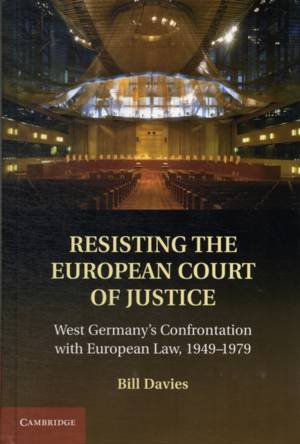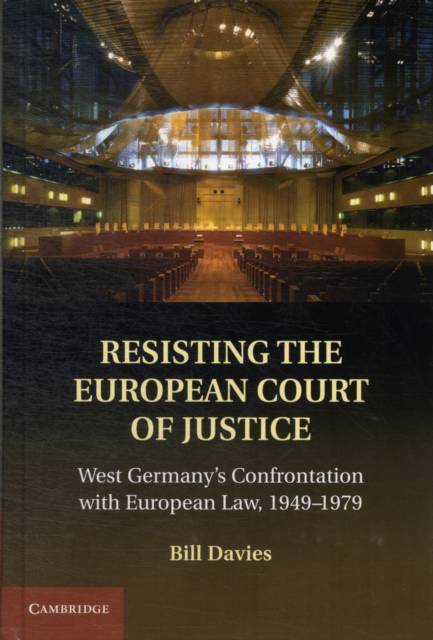
- Afhalen na 1 uur in een winkel met voorraad
- Gratis thuislevering in België vanaf € 30
- Ruim aanbod met 7 miljoen producten
- Afhalen na 1 uur in een winkel met voorraad
- Gratis thuislevering in België vanaf € 30
- Ruim aanbod met 7 miljoen producten
Zoeken
Resisting the European Court of Justice
West Germany's Confrontation with European Law, 1949–1979
Bill Davies
Hardcover | Engels
€ 187,45
+ 374 punten
Uitvoering
Omschrijving
The European Union's (EU) powerful legal framework drives the process of European integration. The Court of Justice (ECJ) has established a uniquely effective supranational legal order, beyond the original wording of the Treaty of Rome and transforming our traditional understanding of international law. This work investigates how these fundamental transformations in the European legal system were received in one of the most important member states, Germany. On the one hand, Germany has been highly supportive of political and economic integration; yet on the other, a fundamental pillar of the post-war German identity was the integrity of its constitutional order. How did a state whose constitution was so essential to its self-understanding subscribe to the constitutional practice of EU law, which challenged precisely this aspect of its identity? How did a country who could not say "no" to Europe become the member state most reluctant to accept the new power of the ECJ?
Specificaties
Betrokkenen
- Auteur(s):
- Uitgeverij:
Inhoud
- Aantal bladzijden:
- 268
- Taal:
- Engels
Eigenschappen
- Productcode (EAN):
- 9781107024533
- Verschijningsdatum:
- 18/06/2012
- Uitvoering:
- Hardcover
- Formaat:
- Genaaid
- Afmetingen:
- 155 mm x 229 mm
- Gewicht:
- 476 g

Alleen bij Standaard Boekhandel
+ 374 punten op je klantenkaart van Standaard Boekhandel
Beoordelingen
We publiceren alleen reviews die voldoen aan de voorwaarden voor reviews. Bekijk onze voorwaarden voor reviews.







